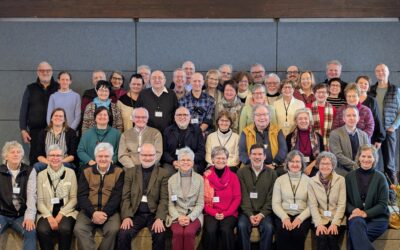One of the many consequences of the coronavirus in all countries, but especially in the poorest ones, is to have taken away the means of subsistence from many people who had insecure or casual jobs. At this time, therefore, it has become even more important to look around and take the most varied initiatives for the benefit of those in need. This is Gospel: Jesus is there, in the least, waiting for us. … Jesus has a preference for the poor, for the “least”. After Peter had denied him three times[1], Jesus asked him the same question three times, “Do you love me more than these?” To Peter’s first affirmative reply, Jesus said, “Feed my lambs”. Instead, to the other two replies, he said, “Tend my sheep”. According to bible scholars, by “lambs” he meant the little ones, the poor, and the needy; whereas by “sheep” he meant everyone else.[2] In this way, Jesus showed his option for the poor long before many bishops, for example, especially in developing countries, formulated and put forward this option. Besides, we know that Jesus came to evangelize the poor.[3] He said so clearly, “Just as you did it to one of the least of these who are members of my family, you did it to me.”[4] While Jesus had already demonstrated this preference with words and works while he was living on earth, his Spirit has very frequently instilled it, down through the centuries, in those who would become his instruments for many, like St Francis, for example, St Philip Neri, St Ignatius of Loyola, St Camillus de Lellis and so on. It was the same for us. At the beginning of the Movement, when we were still at home with our families, the charism drew our attention first of all to the “least” of those around us: the poor, the sick, the wounded, prisoners, the homeless, the elderly, and children. And later on, in the first focolare in Piazza Cappuccini, to those who were the “least” among us. We tried to solve the first problem (the least around us) through works of charity, which were the seeds of the many social actions and works that would begin in later years; and the second (the least among us) through the communion of goods among all of us. Later on, we felt urged to look at everyone, to love every neighbor as ourselves, whether or not that person was one of the least of our neighbors, and to love one another. Now this way of living is so deeply inculcated in everyone that it has become the basic life-style of the whole Movement. But during this recent period … we have been reminded anew to give first place in our hearts to the “least” of our neighbors. How can we put this into practice? Above all, by looking with special attention to those among us who could be the least and by meeting every need through a freely given but intense communion of goods, extended to the Movement throughout the world. … And then by looking around us. … A motto? A question for our hearts: “Have I preferred today, among all my neighbors, those who were most in need?”
Chiara Lubich
(From a telephone conference call, Rocca di Papa, 27th June 1991) [1] Cf. Jn 18:15-27. [2] Cf. Jn 21:15-17. [3] Cf. Mt 11:5 [4] Mt 25:40.




0 Comments